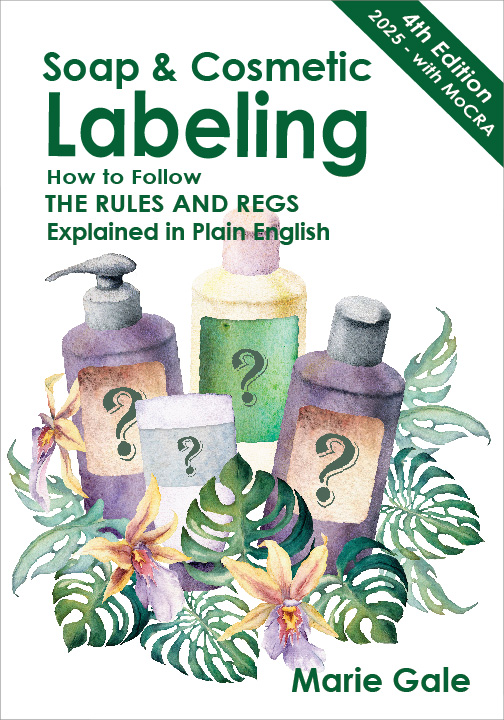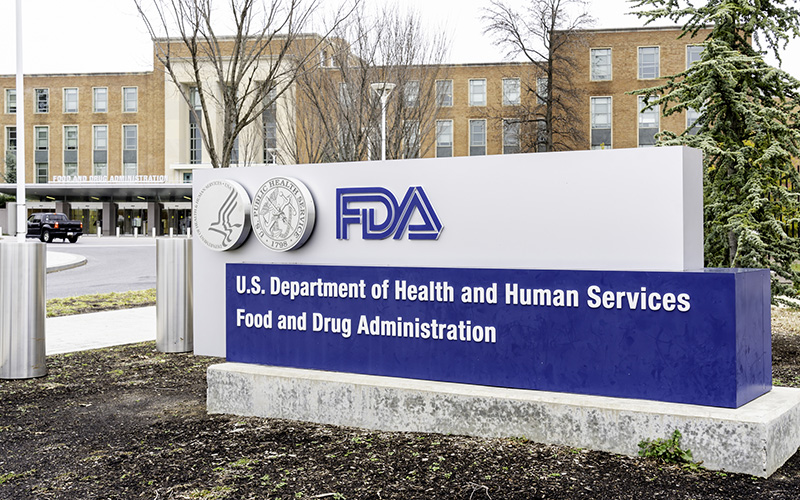Several people have asked me about FDA disclaimers they see on packaging, websites and promotional materials that say:
“This statement has not been evaluated by the Food and Drug Administration. This products is not intended to diagnose, treat, cure or prevent any disease.”
I’ve been asked if the same disclaimer can be used for claims made about cosmetics. The answer is “No!”
The regulations for what you can (and cannot) claim about cosmetics are clear. Putting a disclaimer that the statements “aren’t evaluated by the FDA” doesn’t exempt you from the regulations.
So When ARE These Disclaimer Statements Used?
The disclaimer statements are allowed (in very specific cases) on dietary supplements (vitamins, minerals, herbs, etc.). Of course, when it comes to the FDA, there are very, very, very detailed requirements on when the statements can be made and how the statement can be used in conjunction with claims made.
Before I go any further, let me say that I am NOT an expert in the labeling of food supplements. The information presented here is the result of a general look at the regulations, not a detailed study.
What I found was that, for dietary supplements, certain claims can be made that make a relationship between a nutrient (in a food supplement) to a disease or health-related condition.
Directly from the law:
(6) … a statement for a dietary supplement may be made if—
(A) the statement claims a benefit related to a classical nutrient deficiency disease and discloses the prevalence of such disease in the United States, describes the role of a nutrient or dietary ingredient intended to affect the structure or function in humans, characterizes the documented mechanism by which a nutrient or dietary ingredient acts to maintain such structure or function, or describes general well-being from consumption of a nutrient or dietary ingredient,
(B) the manufacturer of the dietary supplement has substantiation that such statement is truthful and not misleading, and
(C) the statement contains, prominently displayed and in boldface type, the following: “This statement has not been evaluated by the Food and Drug Administration. This product is not intended to diagnose, treat, cure, or prevent any disease.”.
21 USC 343(r)(6)
The FDA has clarified what substantiation is needed (per (B) above).
In addition, in order to make such claims with the disclaimer, the manufacturer must notify the FDA.
Directly from the regulations:
Certain types of statements for dietary supplements.
(a) (1) No later than 30 days after the first marketing of a dietary supplement that bears one of the statements listed in section 403(r)(6) or the Federal Food, Drug, and Cosmetic Act, the manufacturer, packer, or distributor of the dietary supplement shall notify the Office of Nutritional Products, Labeling and Dietary Supplements (HFS-810), Center for Food Safety and Applied Nutrition, Food and Drug Administration, 5001 Campus Dr., College Park, MD 20740, that it has included such a statement on the label or in the labeling of its product. An original and two copies of this notification shall be submitted.
(2) The notification shall include the following:
(i) The name and address of the manufacturer, packer, or distributor of the dietary supplement that bears the statement;
(ii) The text of the statement that is being made;
(iii) The name of the dietary ingredient or supplement that is the subject of the statement, if not provided in the text of the statement; and
(iv) The name of the dietary supplement (including brand name), if not provided in response to paragraph (a)(2)(iii) on whose label, or in whose labeling, the statement appears.
21 CFR 101.93
My take on it is that these regulations were put in place to allow those making dietary supplements to explain what the nutritional benefits of taking the supplement are, and how they maintain a healthy well-being by preventing some sort of deficiency.
Disclaimers on Cosmetic Products
There is nothing in the regulations that allows for similar disclaimers to be made about any cosmetic product. Cosmetics are, by definition, applied TO the human body, and not ingested. They are meant to improve appearance and make one more beautiful—not to cure or treat any type of disease.
Placing the disclaimer (meant for dietary supplements!) on cosmetic products doesn’t alleviate the responsibility to follow the regulations for cosmetics and the claims that can (or cannot) be made for them.
There is, of course, nothing wrong with placing a statement on a cosmetic label, website or promotional materials that says that a person should see a doctor to address any health issues and shouldn’t self-diagnose or self-treat diseases or health issues. That would be completely up to you.

Shameless plug!
To really be able to create your own labels that comply with the regulations, get my book from Amazon and use it.
4th Edition – Released March 5, 2025!!!
Or order directly from me (and get a signed copy)!


Leave a Reply